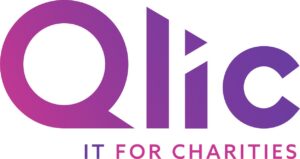As the world becomes increasingly interconnected and more and more of our data moves online, cybersecurity has become one of the most pressing concerns for organisations. Unfortunately, charities and nonprofit organisations are no exception: despite tight budgets and limited resources, they too must shoulder the responsibility of protecting sensitive data against cyber threats and stay on top of emerging cyber security trends.
In fact, due to their public profile and frequent use of online platforms, charities are often seen as a particularly tempting target for hackers. In recent years, we’ve seen numerous examples of high-profile cyber attacks on charities, resulting in massive data breaches and devastating financial losses.
Continue reading our article as we explore some practical tips to help you protect your organisation against cyber threats.

What is Cyber Security?
Cyber security refers to the practice of protecting computer systems, networks, and sensitive data from unauthorised access, theft, and damage. In today’s digital world, where much of our information is digitised and accessible via the internet, effective cybersecurity is essential to prevent cyberattacks and the damaging consequences they can cause.
Cyber security for charities is of paramount importance. Nonprofits often rely on sensitive and personal information to carry out their work, meaning a data breach or cyber attack can have severe consequences for the organisation and its constituents.
Different Methods of Cyber Security
Cyber security contains a lot of nuts and bolts as there are many forms and focus points for each solution. Some cyber security solutions focus on individual devices whereas others focus on a whole network of devices. Whichever solution of cyber security your charity is using or looking to implement, it is crucial that it is properly monitored, maintained and kept up to date.
Methods of cyber security for charities include:
- Endpoint Security
- Identity and Access Management (IAM)
- Encryption of Data
- Incident response
Let’s dive into each and see how they can help your charity.
Endpoint Security
Endpoint security is a critical component of a broader cyber security strategy. Simply, endpoint security refers to the protection of individual devices such as computers, laptops, and smartphones that connect to a larger network.
For nonprofits, endpoint security is vital for ensuring that sensitive data remains protected on individual devices and that the devices themselves do not become entry points for charity cyber attacks.
Hackers often target particular devices as their entry point, and endpoint security guards against this through things such as antivirus and malware software, access management (ie who has authorised access to connect to a network), and data encryption.
Some of the key components of endpoint security for charities include:
- Antivirus software: Antivirus software is designed to detect and remove malware from individual devices. It can be installed on individual devices or centrally managed from a server.
- Firewalls: Firewalls monitor and control incoming and outgoing network traffic to identify and block threats. They can be software-based or hardware-based, and can be customised to fit specific needs.
- Device encryption: Device encryption is the process of encoding data on a device so that it cannot be accessed without the correct authorisation. This helps protect sensitive data in the event that a device is lost or stolen.
- Regular updates: Keeping devices up to date with the latest security patches and software updates is critical for preventing known vulnerabilities from being exploited by cyber criminals.

Identity and Access Management (IAM)
Identity and Access Management (IAM) refers to the policies and technologies that enable organisations to manage and secure user identities and access to resources. For nonprofits, IAM is critical for ensuring that the right people have access to the right information and resources while keeping unauthorised users out.
Effective IAM for nonprofits should be tailored to the specific needs of the organisation. Some of the key considerations include:
- Passwords: Nonprofits should implement strong password policies and require employees and volunteers to change their passwords regularly. Passwords should be complex, unique and difficult to guess.
- Multi-factor authentication: Multi-factor authentication provides an extra layer of security by requiring a second form of identification to access resources. This could be in the form of a code sent via text message or a biometric identifier like a fingerprint or facial recognition. A common example is Two-Factor Authentication (2FA) which involves confirming a user’s identity through two different verification methods.
- Access control: Nonprofits should implement access controls to ensure that users only have access to the resources that they need to do their job. Access can be managed using tools like role-based access control, which assigns specific permission levels based on a user’s job function.
- Auditing and monitoring: Nonprofits should regularly audit and monitor user activities on their systems to detect and respond to any suspicious behaviour. These activities might include logging user actions, reviewing system logs, and monitoring network traffic for signs of abnormal activity.
Encryption of Data
Data encryption is the process of encoding data in a way that makes it unreadable without the proper decryption key. For nonprofits, data encryption is an essential tool for protecting sensitive information such as donor data, employee records, and financial information.
Encryption offers a number of benefits for nonprofits, including:
- Data protection: Encrypted data is secure and essentially worthless to unauthorised users who do not have the decryption key.
- Compliance: Encryption can help nonprofits comply with regulations related to data security, such as HIPAA, GDPR, and PCI-DSS.
- Data integrity: Encrypted data is less susceptible to corruption or tampering, ensuring that it remains accurate and unchanged.
Incident response
Incident response when it comes to cyber security refers to the process of identifying, responding to, and recovering from security incidents. Incident response is a critical component of a comprehensive cyber security for charities strategy. It helps to minimise the impact of security incidents and ensure that normal operations can be resumed as quickly as possible.
Here are some of the main factors to consider when formulating an incident response plan:
- Preparation: The importance of planning out your incident response plan cannot be overstated. The plan is essentially a series of steps that will be put into action should an incident occur. Therefore it needs to encompass what this process will look like and which staff members are involved or responsible for completing each step. The goal of the plan is to outline an effective way to contain and resolve the incident in question.
- Detection and analysis: It is important that charities have systems and procedures in place to detect security incidents as soon as they occur. For instance, they could use firewalls, intrusion detection systems and other advanced threat detection tools. If an incident gets flagged, it is then up to the incident response team to analyse how severe and far-reaching the incident is.
- Containment and eradication: The incident response team should be responsible for carrying out the containment of the incident to ensure it does not spread further, Ways to do this include shutting down affected terminals and disconnecting them from the network. This effectively quarantines the infected device or devices. This might involve shutting down affected systems, disconnecting them from the network, and quarantining infected devices. It is only once containment is completed that the team should focus on removing the threat. This might include removing malware and malicious code from the affected systems.
- Recovery: Recovery only applies once the incident has been resolved. This might involve restoring data from backups, rebuilding systems, and implementing security improvements to prevent similar incidents from occurring in the future.
You can find these and more essential cyber security practices in our webinar during Charity IT Day 2023. In addition to discussing the critical importance of cybersecurity for charities, we also explored:
- key cyber security threats
- challenges faced by nonprofit organisations
- cyber security emerging trends
- cybersecurity best practices
Cyber Security for the Charity Sector
Cybersecurity is a critical concern for organisations across all industries, and the charity sector is no exception. Charities have unique challenges when it comes to cyber security, including limited resources, complex stakeholder relationships, and the need to balance security with accessibility and transparency.
The charity sector is particularly vulnerable due to what they have at stake. This includes personal, sensitive and financial data for:
- Charity Donors
- Charity beneficiaries
- The organisation itself
Find out more about why is cyber security important for charities, the vulnerabilities and some consequences of charity cyber attacks below.
Why are charities vulnerable to cyber attacks?
There are many reasons for charities being a target for cyber attacks, it mostly stems from a lack of resources to focus on cyber security and technical knowledge. See below for more reasons why charities are targeted for cyber attacks:
- Lack of Cyber Security Training for Employees – One of the first leading causes of a charity cyber attack is a lack of training for staff. It is vital to provide cyber security training for your staff as it ensures your staff understand the cyber protocols and software that will keep the confidential data they handle safe.
- Outdated Software and Systems – Secondly, outdated software and systems could be one of the main factors. Charities are more likely to use old legacy systems and old versions of software which do not receive the latest support, updates and security patches. This leaves your organisation exposed to new cyber attacks and vulnerabilities.
- Lack of Budget for Cyber Security – The charity sector tends to have more of a restricted budget, therefore the resources they can afford to purchase are limited. As charity funds are budgeted, they’re more likely to spend it on the frontline charity work they provide to the community rather than in the back office on security procedures etc.
- Attractive Target for Many Hostile Attacks – Unfortunately, by its very nature the charity sector is an attractive target for different types of malicious attacks. This is because charities are known to deal with sensitive and financial data that cyber criminals want to exploit.
- Dependence on Online Donations – Lots of charity organisations have online payment mechanisms for donors to make their donations via their website, this is very attractive to cyber attacks. In particular, hackers could target donor’s personal data such as credit card details.
What are the consequences of a charity without cyber security?
Charities that do not prioritise cyber security can face a range of devastating consequences that can impact their ability to carry out their work. Some of the most significant points when considering cyber security for charities include:
- Moral obligation – Charities and the nonprofit sector have a responsibility to their supporters and customers to protect their data. Lots of people who reach out to charities in confidence want a trusting relationship, as well as supporters.
- Donors Compromised – Cyber attacks that affect donors and compromise their personal info can lead to broken trust between them and the charity and spread to a lack of trust between the wide republic.
- Reputational Damage – This can all lead to reputational damage to charity from the wider public depending on how publicised the breach is. Make your charity known for its secure and trust-based relationship. The Cyber Essentials, a UK government-backed cybersecurity certification scheme, is a way of showing that your charity is committed to protect itself and its stakeholders’ data against cyber attacks.
- Legal and financial penalties – If your charity doesn’t have the legal cyber security requirements in place, this could lead to a cyber attack where data is breached and your charity will receive legal penalties for not adhering to the laws of cyber security. This again could cause your charity reputational damage.

What are the legal penalties a UK charity can face if its data is hacked?
Following on from the point above, legal and financial penalties are determined by how excessive the security breach is. This can include:
Firstly, the Information Commissioner’s Office (ICO) can impose a fine for failing to protect personal data in accordance with the General Data Protection Regulation (GDPR). The fine value is up to 4% of the charity’s annual turnover or 20 million euros, whichever is higher.
There is a private litigation where people whose data was compromised by a cyber attack can launch legal action against a charity. In extreme cases, a charity can lose its charitable status from this. Also, a charity and its directors could face criminal charges if they are thought to tamper with an ICO investigation or fail to protect customer data.
This is why it’s extremely important for charities to follow data management best practices. From having a centralised database to backing up data regularly and keeping data secure, having data management strategies in place will help your charity use data effectively and be GDPR compliant.
Since we mention GDPR we want to ensure you know exactly what we are talking about. The General Data Protection Regulation (GDPR) is the toughest privacy and security law in the world.Despite the fact that it was crafted by the EU, it affects organisations all over the world that are targeting data of people within the EU, including nonprofits. The primary goal of GDPR is to protect people’s personal data and give them more control over it. If you want to understand how GDPR can affect and also benefit your charity check out our Essential Guide to GDPR and Data Protection For Charities.
Final Thoughts on Why is Cyber Security Important for Charities
To conclude cyber attacks are a threat to all sectors and organisations online. The threat landscape is in constant evolution and will continue to grow as technology adapts and advances. Making sure your charity adheres to cyber security laws and implements the needed cyber security solutions for everyday operations is crucial. There are several proactive steps charities can take to increase their current cyber security environment, this can simply start with reviewing what is currently in place and fill in the missing gaps. The National Cyber Security Centre (NCSC) is known for its free cyber security online training for charities. They have several resources available to help kick-start staff training.
The benefits of your charity having a robust cyber security environment far outweigh the consequences of not having the solutions in place. Investing in cyber security may seem like a challenging task, but it is definitely something worth investing in in this ever-evolving digital world. In addition, don’t forget that there are several cyber security grants available, including Microsoft 365 nonprofit grants.
Would your charity like to find out more about cyber security and the correct cyber security solutions tailored to your organisation? Book your FREE Cyber Security Consultation with our IT experts at Qlic by clicking the button below.






